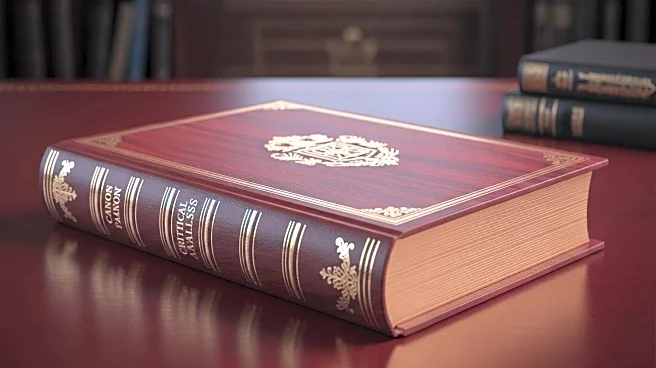What is the story about?
What's Happening?
Piers Morgan, a former host of Good Morning Britain, has released a new book titled 'Woke Is Dead,' where he discusses his role in addressing race allegations made by Meghan Markle and Prince Harry against the royal family. Morgan claims he played a part in 'burying' the claims by naming King Charles III and Princess Kate as the individuals involved in the alleged remarks about the skin color of Meghan's unborn child. He argues that the accusations are absurd and that the royal family has been unfairly targeted. Morgan's book reflects on the impact of the couple's Oprah Winfrey interview in 2021, suggesting that the public's perception of the interview would be different today.
Why It's Important?
The controversy surrounding Meghan Markle and Prince Harry's allegations has had significant implications for the royal family, affecting public perception and media coverage. Morgan's book contributes to the ongoing debate about race and the monarchy, highlighting the challenges faced by the institution in maintaining its reputation. The book also reflects broader societal shifts regarding 'woke' culture and cancel culture, suggesting a change in public attitudes towards such issues. The discourse around these allegations continues to influence discussions on race, media accountability, and the role of public figures in shaping narratives.
What's Next?
The release of Morgan's book may prompt further discussions and reactions from the royal family, media, and public. It could lead to renewed scrutiny of the allegations and the individuals involved. The book's impact on public opinion and media narratives may influence future coverage of the royal family and related controversies. Stakeholders, including media outlets and royal commentators, may engage in debates about the validity of the claims and the broader implications for the monarchy.
Beyond the Headlines
Morgan's book raises questions about the ethical responsibilities of media figures in reporting and commenting on sensitive issues. It also touches on the cultural dimensions of race and identity within the context of the British monarchy. The book's portrayal of the 'woke' era and its perceived decline may reflect broader societal changes in attitudes towards social justice and activism. These discussions may contribute to ongoing debates about the role of public figures in shaping cultural narratives and the impact of media on public perception.















